The Games That Would Be King (2010s Edition - Part One)
By Mento 7 Comments
There's a bunch of "most influential" articles and videos out there right now pertaining to the last ten years of game development (one I'd recommend is Jim Sterling's recent Jimquistion on the subject, as scathing as it is) but I wanted to write something that not only looked at games that irrefutably lit a fire under the game industry, inspiring trends and new genres and directions for many subsequent releases, but also those that quietly innovated without making quite so many ripples. I could've also titled this blog "The Games That Could've Been King," as a lot of the following may have motivated trends and variants had the game industry paid a little more attention. On the plus side, the lack of scores of spiritual successors has allowed those games to retain their uniqueness.
I've tried to pick for each year of the last decade a small handful of games that I'd consider either highly influential or may have been so had things shaken out differently (or could still yet, if they're later rediscovered or end up inspiring the next generation of indie developers). Be sure to post in the comments with your own examples of what games had (and should have had) the most influence on those going forward.
[This first part focuses on the years 2010-2014.]
2010
2010 had the unenviable job of setting the pace for the decade, and honestly it's probably the year that had the most interesting one-offs out of the whole ten year period. Even 2017 with its prolific output largely involved sequels and franchise entries. While 2010 had no shortage of bangers, they would either stand alone - Red Dead Redemption, despite its high praise, did not manifest a whole lot of cowboy games as its destiny - or be iterative steps in a long process of a franchise finding its legs - Mass Effect 2 and Assassin's Creed: Brotherhood, while arguably the respective peaks of both franchises, were built largely from the blueprints laid down by their predecessors and would really only go on to influence their next successive entries.
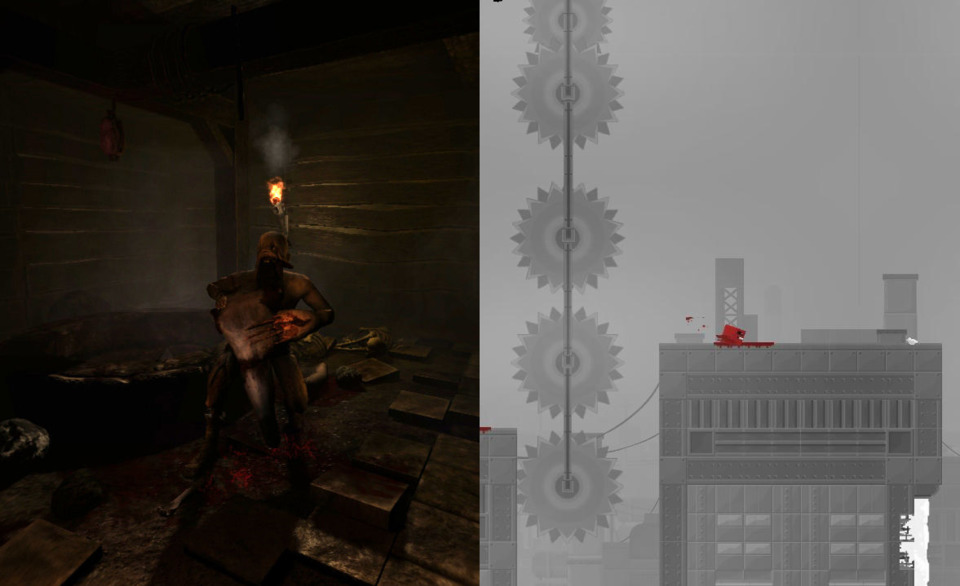
The most influential games of 2010 were, in my view, Amnesia: The Dark Descent and Super Meat Boy. The Indie sphere was still in its nascence in comparison to where it is today, and the sheer number of imitators that these two games - a "masocore" platformer built around being extremely challenging but also designed to mitigate the frustration that accompanies its endless parade of death, the second a very passive breed of first-person horror that encouraged you to run and hide and not even look at the monsters skulking in the shadows - would engender cannot be understated. In fact, one could argue that Amnesia would even later inspire a Resident Evil sequel, as well as one of the most singularly striking horror experiences with P.T..
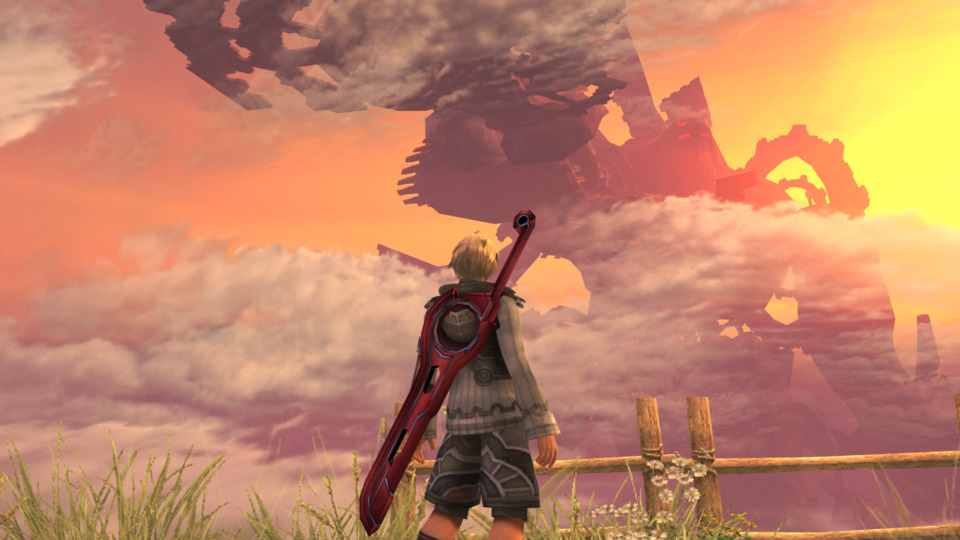
Also, in a slightly more low-key way, Xenoblade Chronicles came along for Wii and gave the ailing sprawling open-world JRPG the kick in the pants it sorely needed, introducing dozens of QoL features that fans of western Bethesda-style RPGs had been enjoying for years and many more besides. It's also one of the most impressively constructed open-world games of the decade from its unlikely setting of two continent-sized colossi to its aesthetic chops and incredible soundtrack, even compared to where we left off in 2019, and I can't help but feel its emphasis on worldbuilding and mechanics built for greater accessibility have found their way into multiple games, not least of which being Nintendo's own The Legend of Zelda: Breath of the Wild (which shared a few developers).
However, if we're talking about games that should've been more influential, there's a massive list to draw from:
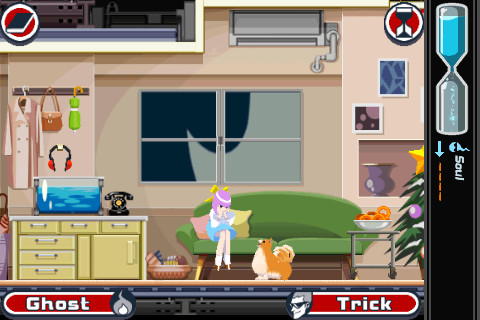
- Vanquish did away with the tedium common to TPS games of hiding behind waist-high walls waiting to take your shot by introducing the means to outmaneuver your opponents with so much speed that they wouldn't be able to hit you, your own Looney Tunes dust cloud being all the "cover" you needed. The goofy, vaguely Metal Gear story was fun too, but building a TPS around alacrity was a masterstroke that wouldn't really be repeated until something like Control came along and made a similar case that taking cover was redundant when all that was required was to stay in constant motion.
- Ghost Trick: Phantom Detective (originally released in Japan in 2010) might've been the major franchise Ace Attorney was for creator Shu Takumi, but for whatever reason it's the only game that does its particular thing: having a spectral protagonist influence the surrounding world through poltergeist powers as they work within a short time loop to produce the ideal result. Add to this Takumi's eye for eccentric characters and some marvellous animation work and it becomes one of the most stylish games of the decade. Maybe it was such a lofty concept that you could only feasibly get one whole game out of it, but I'm sad we never saw a follow-up or anything biting its ghostly style besides a few outliers like Haunt the House: Terrortown.
- Speaking of time-loop games, something that's only just come back into vogue with Outer Wilds, 2010 also had Singularity (which uses the rapid passage of time as a mechanic to fix/break the environment), Nine Hours, Nine Persons, Nine Doors (which used a form of telepathic time travel sparingly but also magnificently), and Radiant Historia (an RPG that brilliantly utilized time travel mechanics to present many branching paths of possibilities, resulting in a game that felt half an RPG and half a Steins;Gate-style visual novel).
- Finally, there's NieR. While it did eventually see a sequel which managed to contain the brilliant idiosyncrasy of Yoko Taro in a more palatable gameplay model, NieR left audiences divided with two huge columns of "pros" and "cons": the incessant grinding cancelled out the intelligent storytelling of its multiple game loops, the ugly graphics cancelled out the soulful soundtrack, Kaine's constant invective and stripper costume cancelled out the appeal of the sympathetic damaged character at the core and the arc she goes through. NieR was neither popular or critically acclaimed enough to see any copycats (its sequel might prove to be a different story) but it's certainly the most unique game of 2010.
- (Oh, except for maybe Deadly Premonition. But that's getting a sequel too, so it all worked out.)
2011
2011 was kind of a so-so year, in my view. While it was a strong outing for RPGs - the following paragraphs will attest to that - most of its games were reboots or sequels that had as many faults as praiseworthy attributes: Human Revolution successfully rebooted the Deus Ex franchise, though diehards say it didn't do nearly enough to honor the ingenuity of the original; Portal 2 was beloved but also found that the original's mind-bending teleportation puzzles didn't fare as well in a more protracted format; Super Mario 3D Land found middle-ground between the linear 2D "Bros." classics and the more exploratory 3D worlds of Super Mario 64 and Sunshine, universally liked but not fully appealing to fans in either camp; Dragon Age II was a lemon with an annoying tendency to reuse dungeons and spawn waves of combatants from nowhere, though some series fans swear by its more personal story arcs; Dead Space 2 was a bigger and better sequel but also recycled a lot of the best scares and tense atmosphere from the first Dead Space, and started getting way too attached to its "Unitology" allusions to certain real-world cults rather than the far more intriguing alien-borne corpse monsters; and for every person who liked Batman: Arkham City's expansion of Gotham locales to explore, there would be someone decrying the lack of Arkham Asylum's more cohesively compact level design.
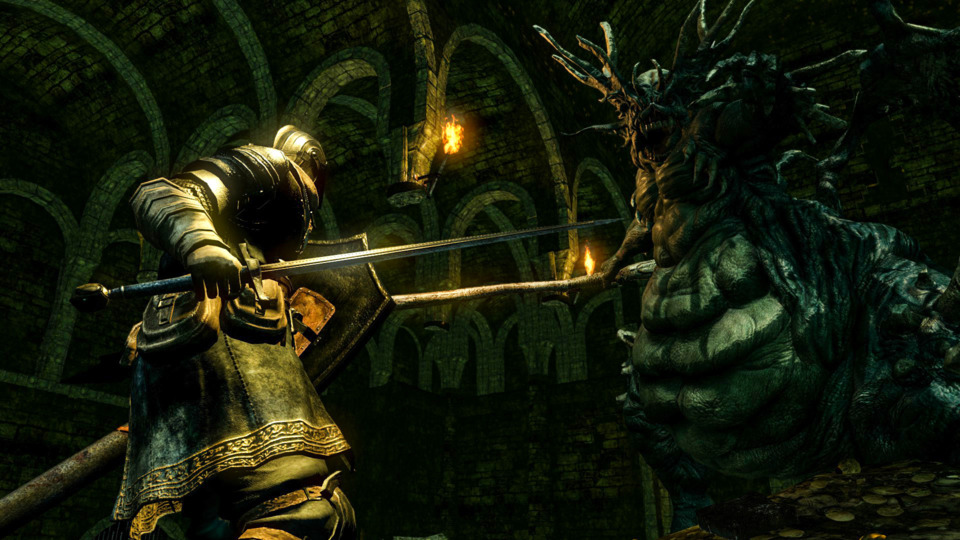
There really isn't any game from 2011 as influential as Dark Souls. Though not the first of FromSoftware's brutal and grim gothic RPGs in which all progress is painstakingly earned, Dark Souls was the first to see wide mainstream success and a level of fanaticism and meme-ry carried into its sequels and pretenders. Even excepting From's own follow-ups like Bloodborne and Sekiro: Shadows Die Twice, there's been no shortage of games aping its mechanics or its oppressively dark atmosphere or both: Nioh, Hollow Knight, The Surge, Salt and Sanctuary, Blasphemous, Death's Gambit, Ashen, Code Vein, and the list goes on (and will continue to go on long into the 2020s, I suspect).
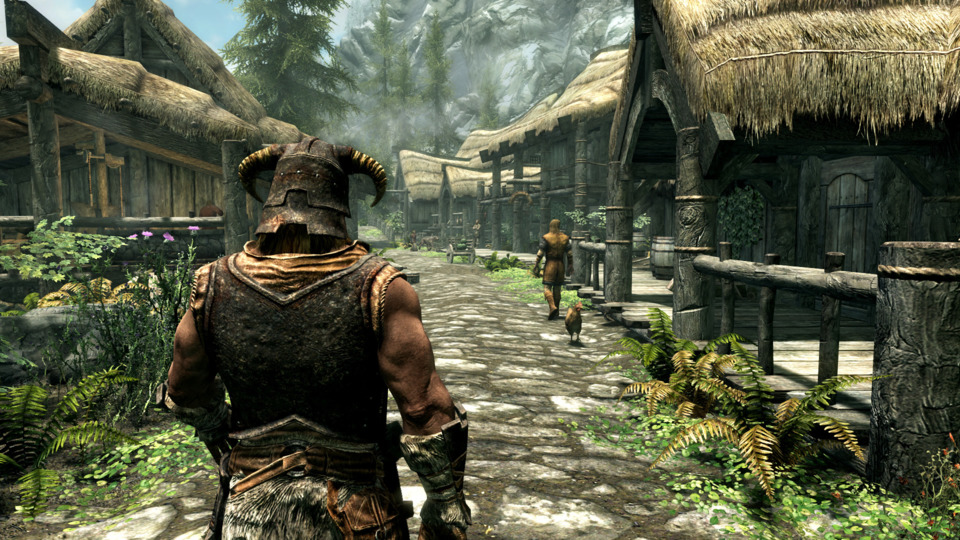
One could make a strong case for The Elder Scrolls V: Skyrim too, but honestly Skyrim didn't so much inspire sequels and evolutions more than it decided to just hang around for the entire decade, re-emerging on every new platform that the 2010s produced: the PlayStation 4, the Xbox One, and the Switch. It was more popular than Dark Souls and certainly more accessible for a wider audience who didn't want to deal with Hidetaka Miyazaki's morbid sense of humor, but to argue it made any sort of impression that its predecessor Oblivion (or, going even further back, Morrowind) didn't already leave behind on a wave of modern CRPGs would be disingenuous. All it really did was assert Bethesda's own brand of expansive (and frequently broken) RPG as the dominant form of the genre for another ten years.
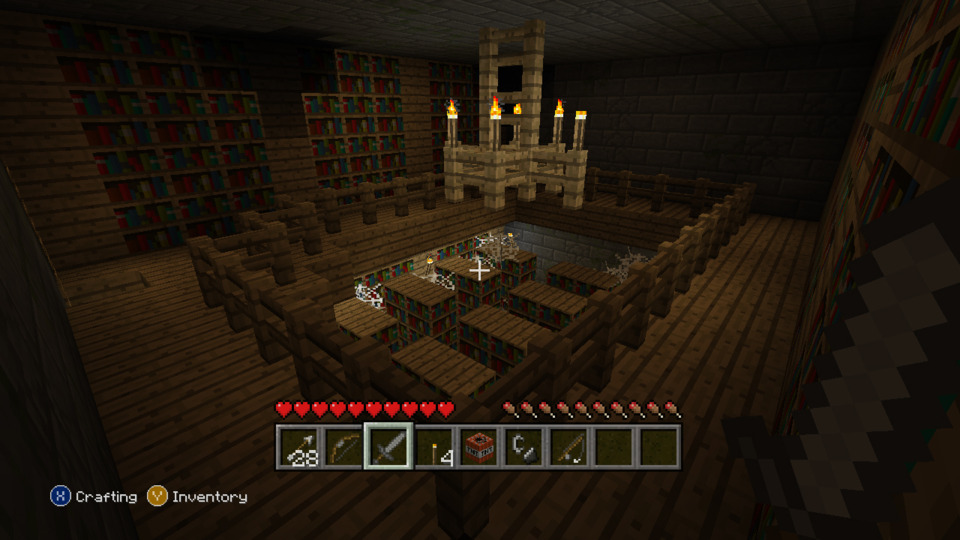
I'd also say the same thing for Minecraft, which was far and away the year's biggest and far-reaching game. That its official 2011 release was also met with what would become its more superior inspiration, Terraria, meant 2011 was definitely the year for construction sims with an RPG bent. However, I would also argue that Minecraft's blocky look and emphasis on making your own fun wasn't as impactful as the "Soulslike" boom; the only games persisting with the former tend to be immaterial and badly formed knock-offs exclusive to Steam and its lack of quality control, or high-budget rarities like Dragon Quest Builders, and equally Terraria inspired only one half-decent follow-up with Starbound. There's an argument to be made for Minecraft leading the charge for the massive multiplayer "survival sim" genre, but it doesn't embody that gameplay philosophy as much as some others like Rust or ARK.
Some 2011 games I wish we'd seen iterated upon:
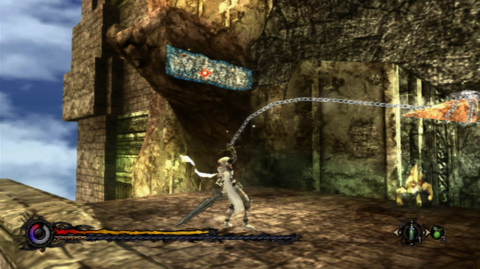
- Rayman Origins approached 2D platforming with a mix of speed and exploration, finding an ideal middle ground between Sonic and Mario that no amount of crossover Olympics games or Super Smash Bros. cameos would manage. Whether it inspired you musically by staying on the beat or through collectibles that only retained their higher values for a very limited amount of time, the player was always encouraged to speed through each of Origins's beautifully hand-drawn levels while also keeping a side-eye out for hidden areas and other bonuses. Origins saw exactly one sequel - 2013's Rayman Legends - but few 2D platformers since have really matched its flow.
- While I didn't adore Sideway: New York as much as Rayman Origins, its gimmick of being a 3D platformer that allowed you to enter 2D planes that wrapped around 3D environments wouldn't be something seen again until A Link Between Worlds and Super Mario Odyssey. Sideway's platforming wasn't exceptional, but I feel like it deserved to have been at least popular enough to fund its proposed sequel - Sideway: Tokyo - to see the light of day, which it has yet to do. A shame, because there's a lot a more confident sequel could've done with those amazing plane-hopping mechanics.
- Both The Last Story and Pandora's Tower failed to make the impact Xenoblade Chronicles did when the Operation Rainfall campaign bought all three to Europe (and later the US), but both are also innovative RPGs that - had events transpired differently - we'd be seeing more games with their ideas. The Last Story melded third-person shooter combat with stealth and AI party management for a package that took some getting used to but offered a challenge that relied on spatial awareness and employing triage on a series of hectic scenarios. Pandora's Tower, meanwhile, was a proto-Soulsian dungeon crawler with a hard time limit on individual outings that made opening shortcuts and making incremental progress the keys to success, using a combat system similar to God of War by combining a versatile whip weapon (that could also pull down fixtures or used to swing across gaps) with the regular swords and shields. Sadly, neither made enough of an impression to spawn imitators.
2012
2012 was a year without any major highlights, at least personally, though was still marked by an uptick of intriguing games without much in the way of precedent, largely coming from the ever-expanding Indie sector. Dust: An Elysian Tail was a highly competent explormer made by a single person; Dishonored was a new niche perfect for Arkane Studios using the environmental storytelling (a.k.a. putting skulls next to toilets) they'd experimented with in BioShock 2 and Arx Fatalis; Binary Domain, though a dead-end for the TPS genre and for the Yakuza developers, still delivered some viscerally-pleasing action; and we see a few of the future heavy-hitters of the indie scene launch their debuts, including Mike Bithell's minimalist but disarming Thomas Was Alone and Giant Sparrow's The Unfinished Swan. It was also a good year for loot RPGs, between Borderlands 2, Darksiders II, and Diablo III.
2012's most influential game, as much as I'd rather not admit it, was Telltale's The Walking Dead. Neither its story route-determinant decision matrix or the episodic structure were new, but the combination thereof and the personalized cliffhangers it produced turned out to be a compelling equivalent to serialized TV drama. Telltale would use the success of this game as a launching point for a narrative-driven gaming empire that eventually collapsed under its own weight, producing dozens of episodic series with the same framework (my personal favorites were Tales from the Borderlands and The Wolf Among Us). Its focus on choices and an episodic structure also in some part inspired the King's Quest reboot, DONTNOD's melancholy Life is Strange, and The Longest Journey finale Dreamfall Chapters.
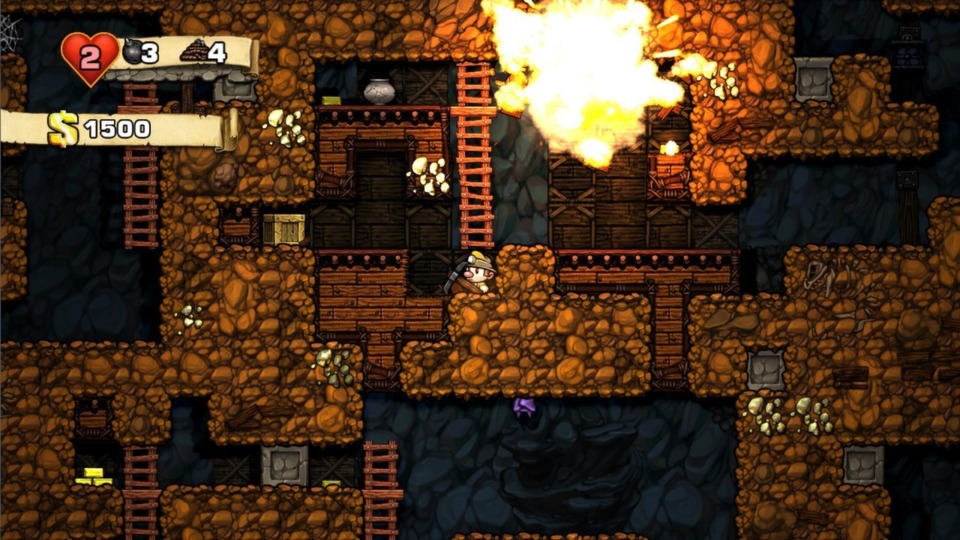
I would happily countenance arugments that the crown should go to Spelunky (the "HD" version that debuted on XBLA in 2012) instead, because as well as being a game I much prefer it also helped kick off a trend of what we tentatively call "roguelites": games that adopt the permadeath run-based sessions of those old ASCII dungeon-crawlers into various new formats and genres. Spelunky's sense of progress was as ethereal as the unkillable spirit that pursued those who dithered too long in Spelunky's mines and caves of death, but at the same time your continued improvement could be measured by how more adept you were at its platforming and a finely-honed paranoia about what awaited beyond the edge of the next screen or beneath your feet. Spelunky directly inspired other run-based side-scrolling platformers like Rogue Legacy and Dead Cells, and to a lesser extent top-down dual-sticks like The Binding of Isaac and Enter the Gungeon. I think it also tapped into the same crowd (developers and players alike) invigorated by Dark Souls; those who missed the days when a game could kick your ass until you eventually became strong enough to fight back.
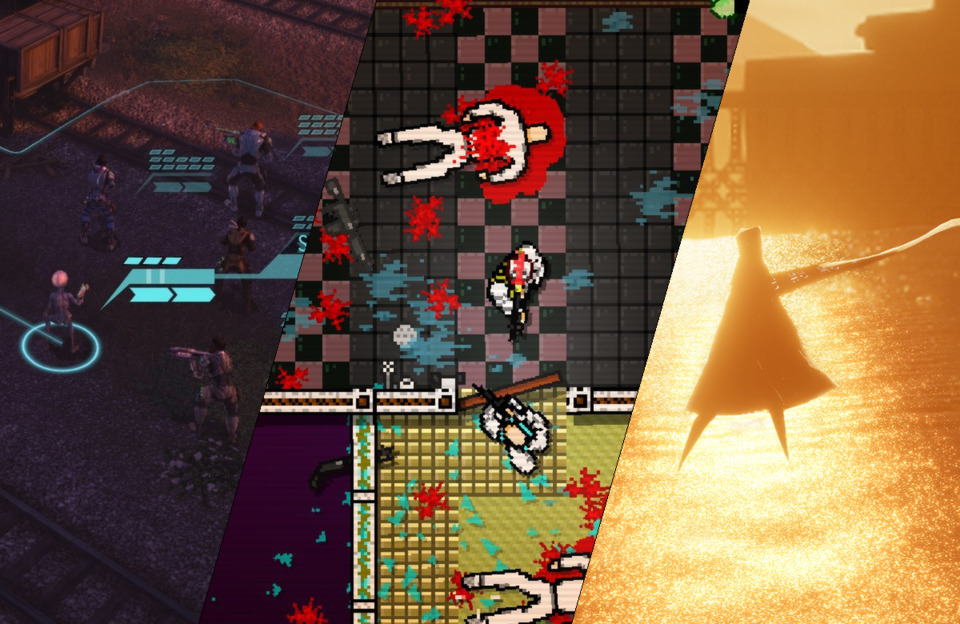
Other worthy cases include the XCOM: Enemy Unknown reboot and its resurrection of the original's harsh but fair strategizing, which continues to capture the imagination with spiritual successors like Xenonauts, Mutant Year Zero, Shadowrun Returns, Phoenix Point, and the unlikely chimera that is Mario + Rabbids: Kingdom Battle; Hotline Miami's psychedelic style and brutally efficient "do it until you get it right" gameplay loop inspired its own menagerie of top-down action games, many soulless knock-offs set in other parts of the world; and Journey opened the hieroglyphic temple door for a lot of contemplative action-adventure games that worked hard to establish their tone and atmosphere, though few of its progeny (like Abzu or Bound) chose to also copy Journey's anonymous but empathetic utilization of multiplayer.
2012 games I wish made more of a lasting impact:
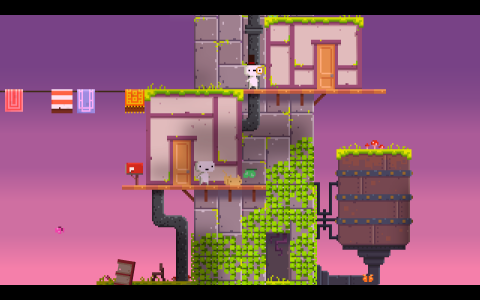
- Sleeping Dogs and the evolutionary steps it brought to open-world crime games, only for its strides to be reset by the studio's collapse and another brainless Rockstar sequel, is one of the greatest bummers of the past few years. Creating a visually and narratively slick detective adventure through the mean (and reflectively wet) streets of Hong Kong, the travails of Wei Shen ably mixed driving, gunplay, and brutally efficient martial arts in a manner where all three could've stood alone as the core component of its own game, rather than the GTA feeling of several half-baked and inaccurate systems in a composite that was just about stronger than the sum of its parts. More than anything else, Sleeping Dogs was stylish and had a strong aesthetic identity as well as a few Yakuza aspirations for its array of side-content - a game series that western developers could do well to imitate more often.
- Legend of Grimrock created an opportunity to reboot a very specific older RPG format of the real-time first-person party-based real-time dungeon crawler (often affectionately referred to as "blobbers" by the retro CRPG community) and while the game did see some moderate mainstream success, the only games that resulted from it was a half-hearted Might and Magic reboot (Might & Magic X), some spirited but underwhelming Indie competitors like Heroes of the Monkey Tavern, and Grimrock's own superior sequel Legend of Grimrock II. Dungeon Master, the grandfather of this specific sub-genre, was also my first ever computer game so I have a certain amount of attachment to games of this sort, but it doesn't look like it's going to come back again any time soon. Fans will have to make do with Wizardry-derived first-person turn-based dungeon-crawlers games like Etrian Odyssey (and yes, there's a strong distinction between the two, dang it).
- And then there's Fez. Remember when we thought there'd be many more puzzle games from the indie circuit that would necessitate a notebook to track observations and clues? Fez stirred an old muscle many of us had allowed to atrophy, presenting not only a servicable 2D platformer with a world-spinning gimmick but one with many deeper mysteries that took some communal digging to uncover. We've since entered an era of "wiki gaming"; games with backstories and mechanics so dense and esoetric that people have gone to the trouble of creating online databases and videos to keep track of it all, with scores of players scrutinizing each new piece of lore and update as it is discovered. With these online communities ready to discuss and disseminate their findings, I'm not sure another game will ever strike a chord the same way Fez did, but I would've liked to have seen more try.
2013
The first year for which I played well over fifty releases, which probably says as much about my proclivities as it does for 2013's output. However, it was a year not so much known for its games but for its new consoles: both the PlayStation 4 and Xbox One debuted in 2013, though I can't really say anything in their respective launch libraries were particularly explosive. For most, 2013's GOTY was The Last of Us, the moribund stealth action game from Uncharted developers Naughty Dog, though I'd hesitate to call it all that influential: while it did help to inspire mechanics in other zombie games, like Days Gone, the zombie shooter genre was already doing just fine before TLOU came along. You could argue that it set a new high bar, bouncing between loud gunfight action with creeping (or clicking) horror where the best recourse was to stay as quiet as possible, but to this day the only other scary franchise with mushroom people in it is Luigi's Mansion.
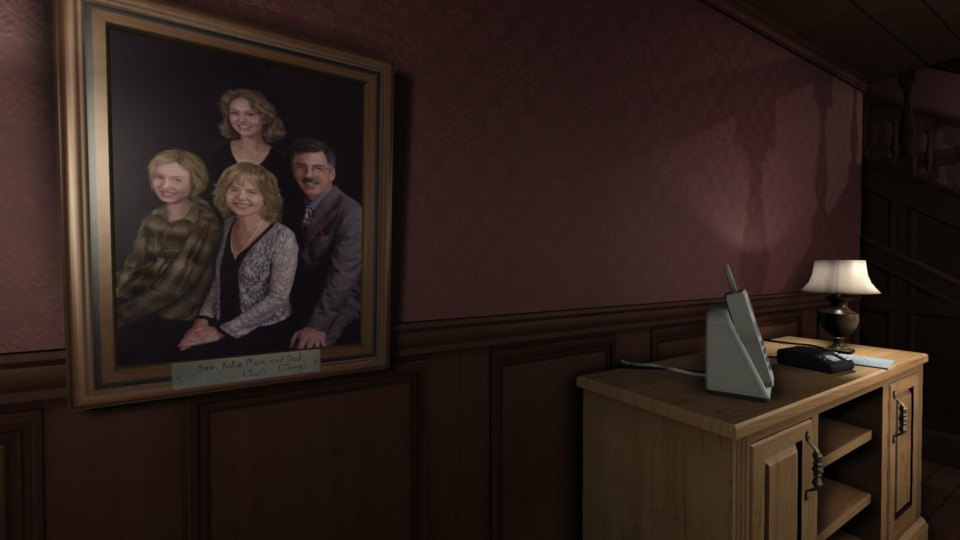
Gone Home by Fullbright seems like a powerful (or maybe powerfully troll-y) choice for most influential, because while it wasn't the original first-person exploration game to be dismissed as a "walking simulator," it seemed to draw the most ire from game prescriptivists who were adamant that a lack of game mechanics precluded it from the medium. (These tend to be the same anime avatars who have zero problems with visual novels, incidentally, but that's maybe neither here nor there.) Gone Home has some precedents with the likes of 2012's Dear Esther, which truly was pointless, and 2011's To The Moon, which treated both the protagonists and the player alike as onlookers in another character's life story. Still, Gone Home was where the idea of the walking simulator solidified into the kind of gentle, heartfelt and empathetic journey through someone's belongings and journals that nonetheless managed to anger a lot of Steam reviewers. Dozens more would follow, like Firewatch and What Remains of Edith Finch and Fullbright's own Tacoma, almost all of which would go on to grow the divide between those looking to games as pure entertainment and those looking to games as artistic self-expression.
Nothing else is really jumping out at me as being super influential. Papers, Please was certainly something we'd never seen before, but also something we've yet to see since (creator Lucas Pope's next game, Return of the Obra Dinn, was also decidedly singular). BioShock Infinite and Grand Theft Auto V inspired almost as much derision as adulation, especially later once they'd had time to be properly analyzed, and we've seen nothing from either franchise since let alone any external aping. Also unfortunately true for Pikmin 3 and Sly Cooper: Thieves in Time: two of my favorite sixth-gen franchises that briefly returned in 2013 only to vanish forever once again (and no, I don't count Hey! Pikmin). That my three favorite games of 2013 were a Zelda, a Saints Row, and a Tales suggests that I had a "comfort zone" kind of year.
A few 2013 games I hoped would encourage similar projects:
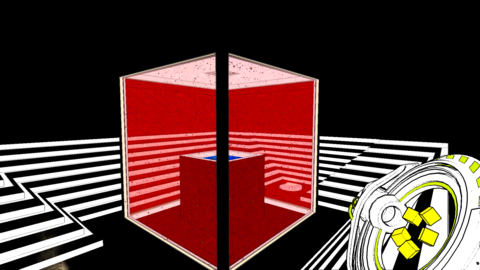
- NES Remix was a fun idea that perhaps didn't go far enough with its mash-ups. It, along with Super Mario Maker, felt like Nintendo took a side glance at what the internet was doing with its original assets, and before they hit the "send in the lawyers" button they had the thought of "hey, there's something to all this." Created by IndiesZero, who had risen to prominence with the fake but familiar 8-bit games of the Retro Game Challenge DS series (based on the GameCenter CX TV show), NES Remix wasn't just predicated on "man, how crazy would it be if Link showed up in Super Mario Bros.?" ponderings, but worked as a Cliff's Notes of how these games worked - the notable mechanics and moments - and combined all these little lessons together in a fast-paced procession that was not dissimilar to the WarioWare microgames. I'd always hoped for a "SNES Remix" follow-up, but beyond an iterative sequel that brought in a handful more first-party NES titles it doesn't seem like we'll see its kind again.
- I'm not sure if you could replicate the magic of Antichamber. Manifold Garden took a crack at something similar recently, and obviously The Stanley Parable put its disorienting wizardry towards more comedic purposes, but the non-Euclidean madness and stark minimalism of Antichamber made it feel like a fever dream; the sort of place where logical and spatial consistency puts up a "Gone Fishin'" sign and calls it a day. I'd love to get challenged by a first-person puzzle game in that specific manner again, but most I've seen are happier trying to riff on Portal instead by way of magnets (Magrunner), cubes (QUBE), laser beam refractors (The Talos Principle), or sticking balls in holes (The Turing Test). I'm hoping the non-Euclidean dream isn't dead; just hiding somewhere we can't find it.
- I'm honestly kind of surprised Platinum Games hasn't been allowed to make another Metal Gear Rising. Giving it its own brand separate from Metal Gear Solid suggested that either PG or Konami intended for it to be a series, and now that Kojima's not allowed anywhere near his own baby it seems like Konami could use someone with Platinum's skills to keep the IP alive, in as much as they want to keep any of their big earners active given the bizarre, fume-huffing form of mismanagement the company has been employing of late. MGR was a gloriously stupid and highly entertaining character action game that was almost (though I'm not convinced that it wasn't) a MGS parody in its earnest portrayal of corrupt superhuman US Senators, cyberwolves, mariachi disguises, and a ninja robot man who was part Cuisinart and part an teenager's edgy textbook sketches. I'd love for there to be another one, especially if it kept escalating the ludicrousness. (Though, if I'm being honest? I also kinda want to see what a Platinum Games Death Stranding would look like.)
2014
I think 2014 was the last of the truly mediocre years, as I look over my list of completions and realize I don't have strong feelings about really any of them. 2014 was a very unpleasant year for gaming in general due to certain controversies raging on and the weirdly apoplectic backlash here over the hirings of Dan and Jason (figures this was also the year I became a Giant Bomb mod).

Though I didn't play either, I think the sensible candidate for 2014's most influential game would either be Destiny or Hearthstone. The former, the new sci-fi franchise from Halo creators Bungie, would begin in earnest a succession of modern "shlooters" with a more overtly MMORPG-inspired framework involving looking for parties and taking on "instances" and "raids", including BioWare's Anthem (you could also make the case that 2013's Warframe also helped push this format of co-operative online multiplayer shooter). The latter, a one-vs.-one competitive card game based on Blizzard's Warcraft universe, isn't a million miles away from what a dozen Magic: The Gathering adaptations had already done, but couching it in a fantasy setting so familiar to so many helped to establish its enormous presence and stack the deck for a great number of subsequent card-based RPGs, from doomed Valve imitator Artifact to run-based single-player titles like Slay the Spire. I'm not sure Gwent would've been quite as much of a thing without it either, but that's conjecture.
Just looking at the rest of my meager top-ten of that year, and we have: Dragon Age Inquisition, an expansive open-world RPG of nodes to uncover where the only true spirtual follow-up was BioWare's disastrous Mass Effect: Andromeda; Divinity: Original Sin, the first of a duo of tactical RPGs that really stand alone with the amount of complexity and versatility they offer, especially with environmental variables; The Talos Principle, a game heavily inspired by Portal and not subtle about it; Shovel Knight, though a strong retro throwback platformer with an impressive legacy of free content updates, it wasn't exactly distinctive either; Theatrhythm Final Fantasy: Curtain Call, an enhanced remake of a rhythm game series that only got as far as a Japan-only Dragon Quest sequel; Captain Toad: Treasure Tracker, a delightful puzzle-platformer based on a Super Mario 3D World bonus stage that Nintendo has no plans to follow up on; Steins;Gate, a visual novel which only technically qualifies as a 2014 game; Middle-earth: Shadow of Mordor, a series that went downhill fast despite its potentially (open-)world-changing innovations; and Legend of Grimrock 2, which we've already established was the last hurrah for the brief resurgence of an archaic model of dungeon-crawler. Many fine games in there, but very few that A) offered anything new or B) had their new things adapted or evolved by future video games.
Even if 2014 was the equivalent of a filler episode, I've got a few games in mind when I think about how the game industry could've looked very different five years later:
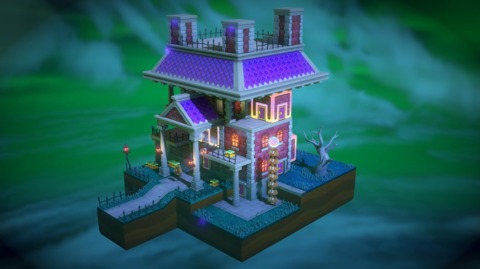
- The most obvious is Middle-earth: Shadow of Mordor and specifically its Nemesis system. Randomized enemies that organically grew to become major thorns in the player's side, adapting themselves after every loss to be more of a hassle, and mocking you when they finally got one over on you. Shadow of Mordor used a network of these AI orcs to create their chains of command for you to demolish or manipulate, giving what was on average a standard open-world action game some political upheaval mechanics that might be better served in a different context. That new context never arrived, unless you count the deeper "grand strategy" games from Paradox, and so the Nemesis system stands alone as a Middle-earth original despite all our then-predictions for the contrary.
- Sure, let's put Captain Toad: Treasure Tracker in here too. It's perhaps too early to say that there'll never be another one - I've no idea how well the Switch remaster did for Nintendo, but I didn't hear a whole lot of discussion around it - but I don't imagine we'll have a "Year of Toad" to celebrate in the near future. It's a shame, because Captain Toad is one of those games that has this really remarkable aesthetic where it looks like one of those wonderfully detailed 3D diarama models you'd maybe buy as a centerpiece for your coffee table or bookcase. Nerd-bougie interior decoration tips aside, Captain Toad: Treasure Tracker was also compelling as a puzzle box you had to solve step by step, figuring out how to get Toad from points A to B to C to D as you make little detours for collectibles along the way, often manipulating the level's layout with button clicks to move pillars and platforms or increase/decrease the water level. I'd love for Nintendo to take their world-class level design to that puzzle format again.
- This might be a dark horse choice, but I'd love to see more JRPGs in the future get as weird as Lightning Returns: FFXIII-3. Just not in the sense that it's thematically and narratively bizarre, but that it takes on a franchise (or a franchise within a franchise) that was running on fumes and choosing to transform it into something unrecognizably insane. Without getting into the specifics of how and why Lightning Returns is unusual even for a Final Fantasy game (let's say it involves combining Melancholia, Zardoz, and the New Testament's Book of Revelation), it's still grounded by some decent action-RPG combat and a heavy dose of personalized self-contained stories related to saving the individual souls of important NPCs and FFXIII's previous party members, with an apocalyptic ticking clock to prompt you to consider the best use of your time. The one strength JRPGs had over their occidental brethren was the confidence to go extremely "off-Broadway" with their worldbuilding and storytelling, and with the eccentric likes of Tides of Numenera and Disco Elysium it feels like Japan's now losing that advantage (though you could argue NieR: Automata addressed it somewhat).
(Next time: 2015, perhaps the best year for RPGs until 2017 knocked it off the top spot; 2016, a year I mostly wasted playing an Indie farming game; 2017, arguably the greatest year of releases of all time; 2018, a year that would've been one for the history books had it not immediately followed 2017; and 2019, a year where any long-reaching influence has yet to be ascertained.)

7 Comments